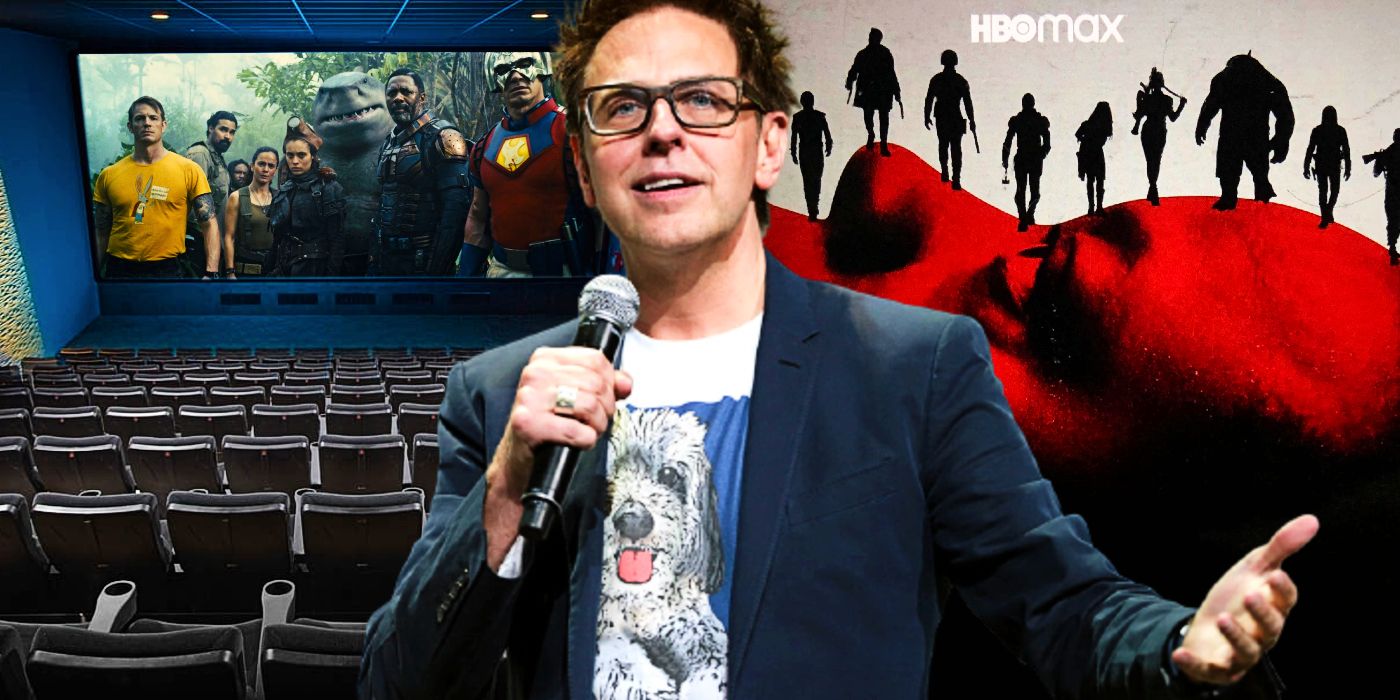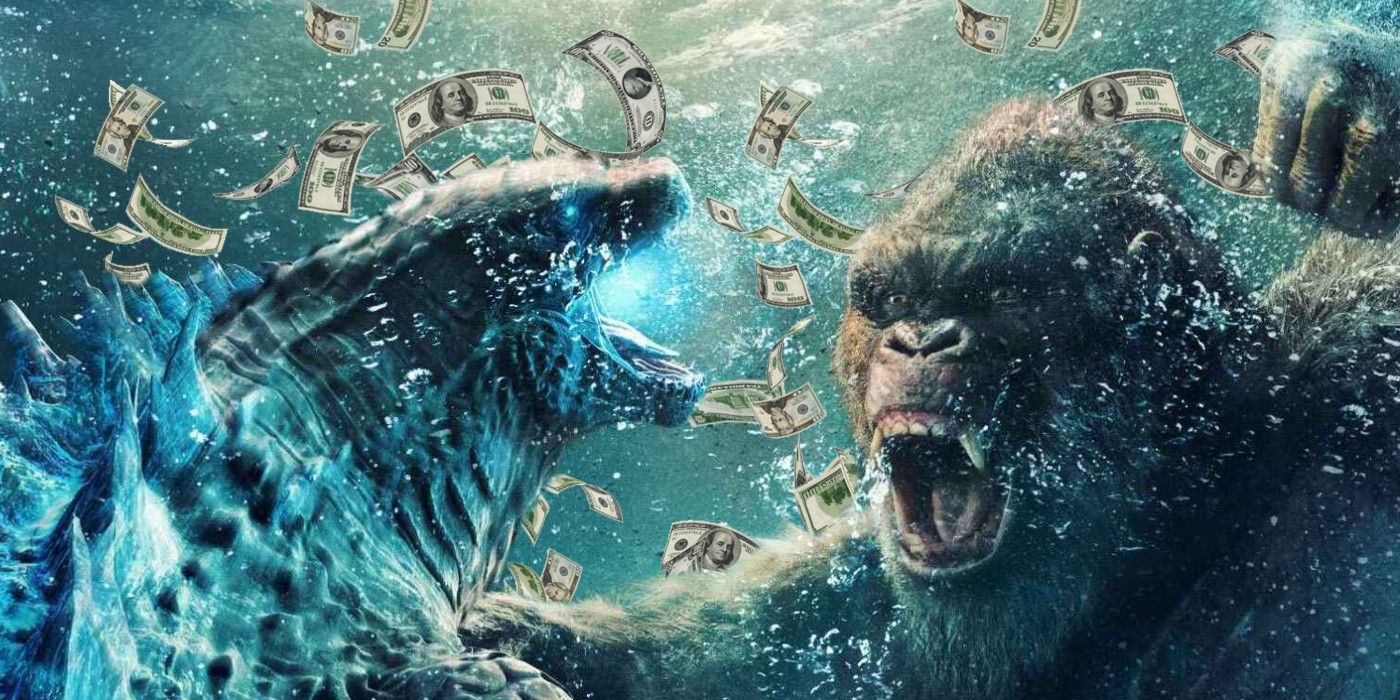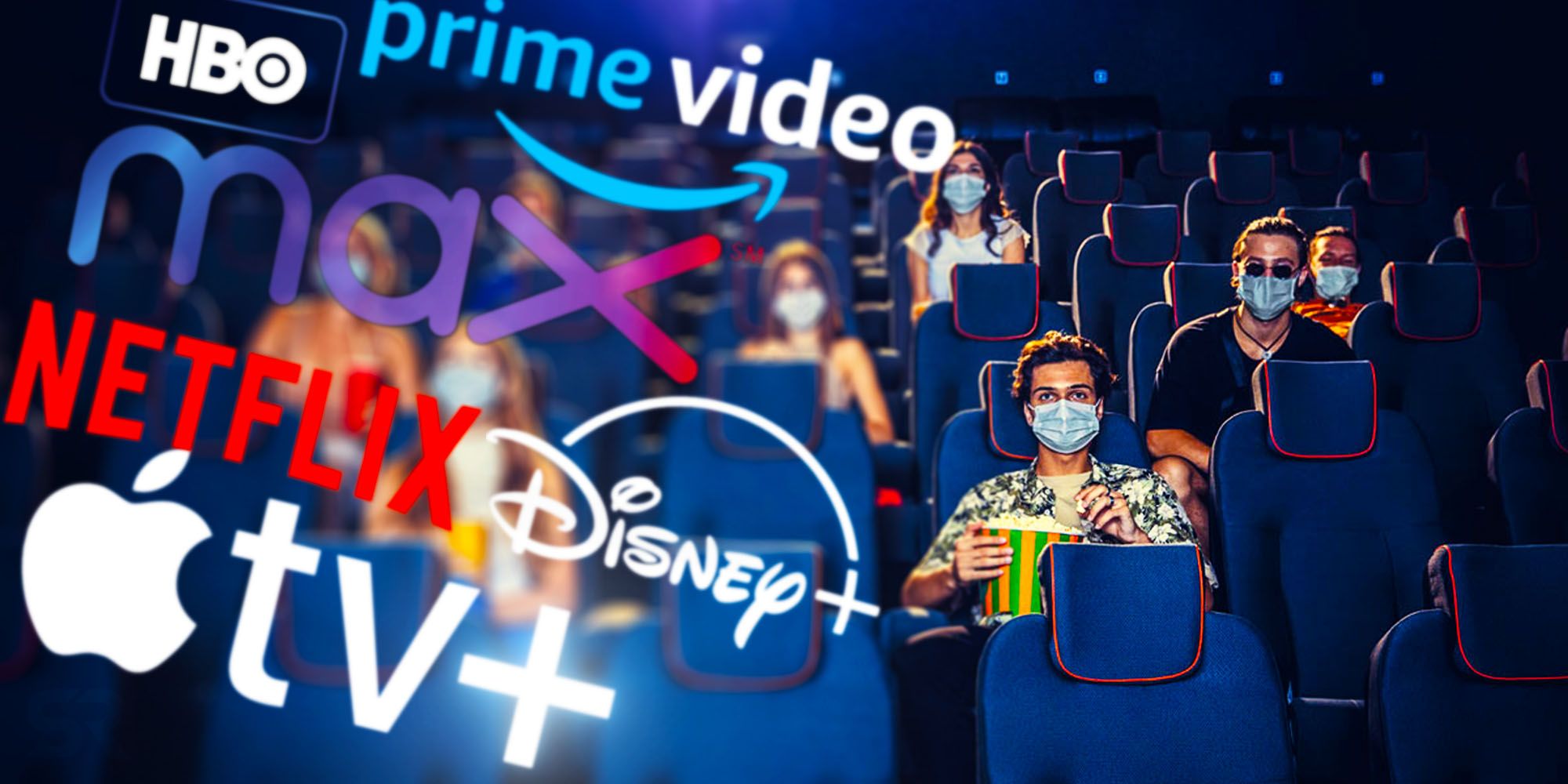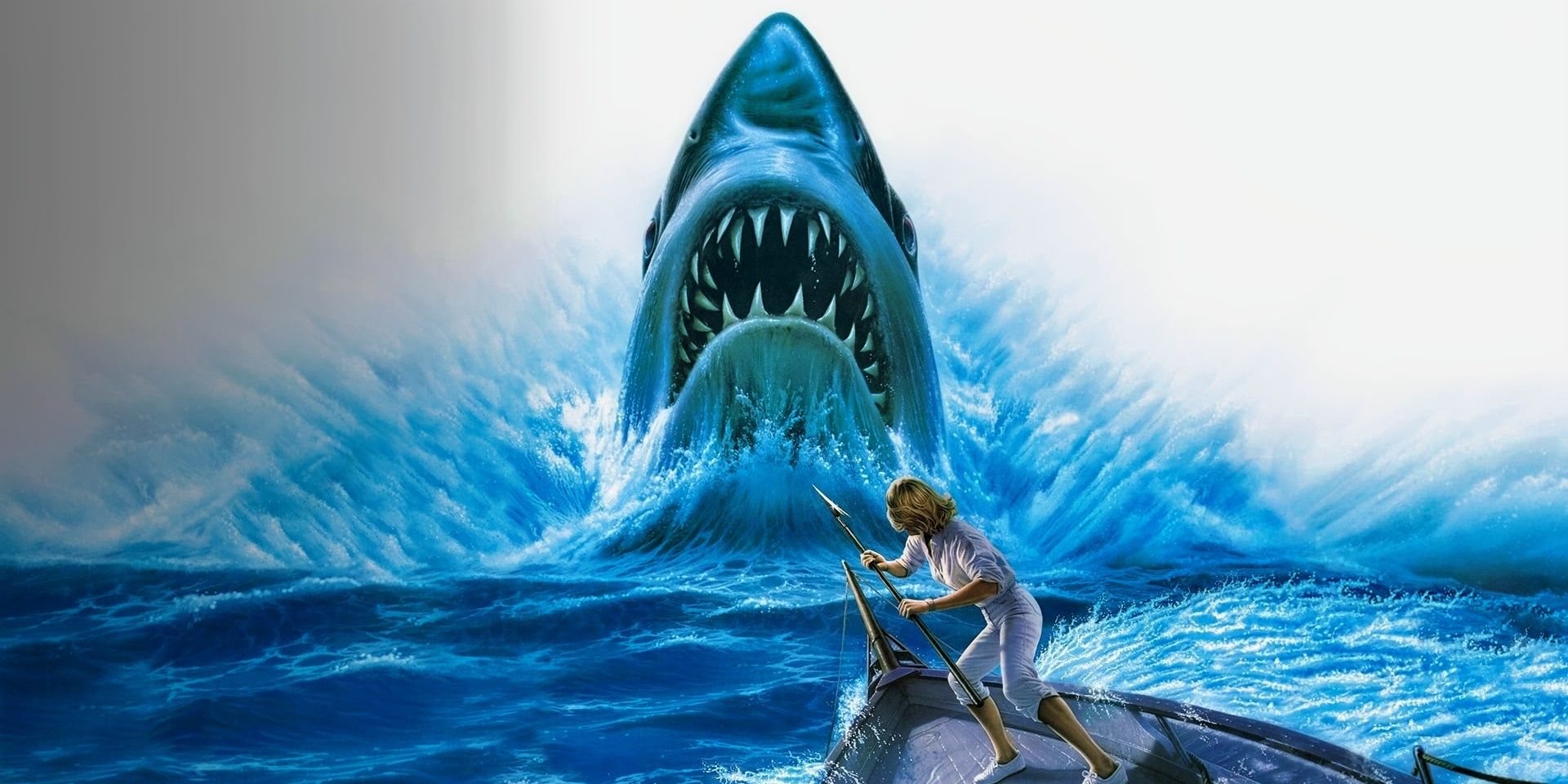James Gunn is exactly right when he says big streaming releases aren't a huge problem because movies last because people can watch them at home, not just in theaters. The coronavirus pandemic threw the movie industry into disarray, further shifting big movie releases like The Suicide Squad away from the big screen and onto streaming. While theaters and the big screen will always be a fixture in movie-going culture, thanks to a shrinking box office, they won't always be the biggest place to see movies.
The advent of streaming and especially the growth in big-budget streaming releases like Tomorrow War and Army of the Dead, combined with shortened theatrical exclusive windows has created a lot of conversations about big-screen movies vs small-screen movies, which, in most cases is a mostly arbitrary point. Movies are movies, and while bigger screens and louder sound can certainly elevate a movie, the line between movies made for theater and movies made for home viewing isn't nearly so clear as it was in the days where non-theatrical films were almost all low budget straight-to-video B-movies.
The post-pandemic re-opening of movie theaters and same-day streaming releases has changed the way we see theatrical releases, with some movies intended for blockbuster theatrical experiences being viewed primarily by huge audiences at home as the box office struggles to recover. Studios like Warner Bros. say they're returning to theatrical exclusive releases in 2022, but the streaming shift won't totally go away, especially with shorter exclusive windows, meaning the way we consume movies as a culture will never be the same, but in some ways will be the same as it ever was.
Box Office Was Going Away Before the Pandemic
The biggest elephant in the room with this topic is the fact that the ticket sales are drying up, and have been for some time. While box office revenue has increased for some studios in recent years before the pandemic, the number of tickets being sold every year has actually been in decline for two decades, with theater attendance hitting an all-time low in 2017. The box office was being held afloat by price increases, which isn't viable long-term.
The decline started before the advent of streaming, but the increasing availability of inexpensive quality streaming TV and movies at home has surely had an impact. It likely started with TV screens getting bigger and cheaper and home video being available on high-quality formats at video rental stores in the late 90s, with the share of screen time at home only increasing yearly leading into the streaming boom.
Streaming is More Profitable Than the Box Office
Not only is streaming growing in popularity while theaters are shrinking, but streaming is far more profitable, especially for studios with their own streaming platform. Disney's industry record-shattering box office performance in 2019 brought the company just over $11 billion, with Disney movies accounting for 80% of 2019's biggest hits. But those heights are hard to achieve on a yearly basis due to release schedules of big blockbuster IP franchises, with the stars aligning in 2019 so seven of Disney's movies - Captain Marvel, Avengers: Endgame, Aladdin, The Lion King, Toy Story 4, Frozen II, and Star Wars: The Rise of Skywalker - grossing over $1 billion (and Avengers: Endgame setting the all-time record at $2.8 billion). Meanwhile, Netflix's yearly revenue first eclipsed $11 billion in 2017 and has only grown since, posting nearly $25 billion in revenue in 2020. Disney+ revenue, of course, exceeded the pandemic box office in 2020 and won't only do so again in 2021, but also exceed its record 2019 box office haul as well.
Streaming revenue isn't just bigger for studios than box office grosses, either. Studios share around half their box office revenue with theaters (even more internationally), whereas they get to keep the lion's share of streaming revenue for their own content on their own platform, only sharing a small percentage with companies like Google or Amazon when their hardware is used to stream the movie. It doesn't take a big studio CEO to know massive revenue boosts and higher profit margins are a good combination. There's a reason WarnerMedia CEO Jason Kilar sees $1 billion streaming movie budgets in the future.
The Long Term Impact Of Movies Comes From Home Media and Streaming
So, movies are going more and more to streaming, but how will that impact the way we watch them and talk about them? This brings us back to James Gunn's quote: "Movies last because they’re seen on television. Jaws isn’t still a classic because people are watching it in theaters. I’ve never seen Jaws in a movie theater. It’s one of my favorite movies."
Jaws is a great reference for Gunn's point because it's old enough that most people never had the opportunity to see it in the theater, yet it's still widely regarded as one of the greatest films of all time. The same goes for many classics from Citizen Kane to The Godfather or even some more modern movies like Fight Club, which bombed in the box office and gained a second life on DVD.
Theaters have traditionally been a cultural touchstone for movie-goers, but they were also the primary (or only) way for a movie to make any money for most of that time. A movie may start a conversation when it hits theaters, but the home market determines if it's still talked about years later. Batman v Superman: Dawn of Justice is a great modern analogy, where the movie made a big initial splash at the box office, and certainly started conversations, but writer Chris Terrio says it was sabotaged by studio cuts, it was the release of the three-hour Ultimate Edition (AKA Zack Snyder's Director cut) that truly immortalized it with fans, keeping it in the conversation for years, serving as a major driving force behind the campaign for the Snyder Cut, which has become a Hollywood legend now, despite only being released on streaming at the end of the day.
There was a time when theaters were the only place most people could see movies, but the ability to watch, rewatch, pause, rewind, and truly pour over films at home redefined many people's relationship to cinema, falling in love with larger than life stories at home. While the theatrical experience may never return to what it once was, the home viewing experience will always be the primary way audiences build and maintain relationships with their favorite movies.




